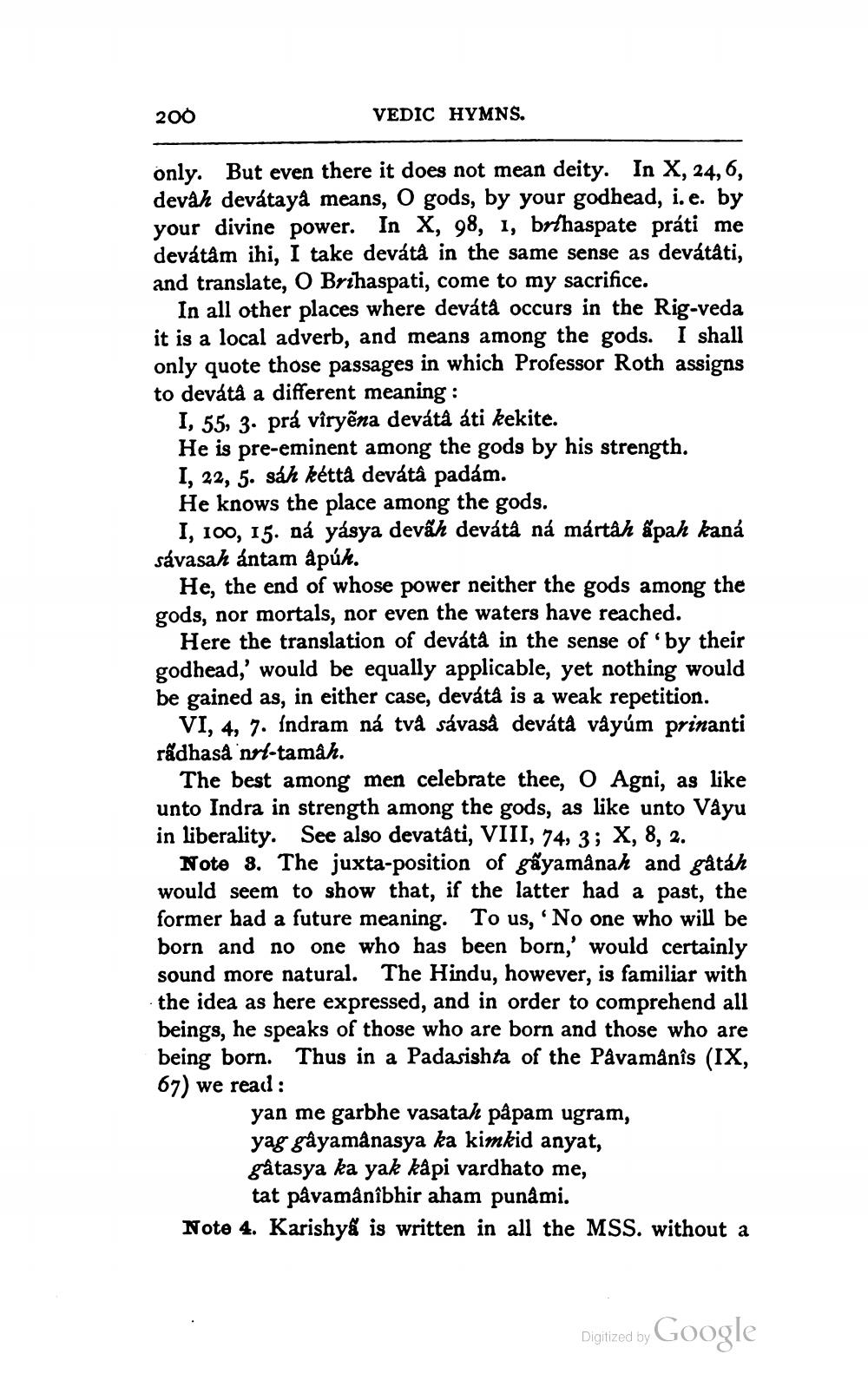________________
200
VEDIC HYMNS.
only. But even there it does not mean deity. In X, 24, 6, devah devátaya means, O gods, by your godhead, i.e. by your divine power. In X, 98, 1, brthaspate práti me devátàm ihi, i take deváta in the same sense as devátáti, and translate, O Brihaspati, come to my sacrifice.
In all other places where devátà occurs in the Rig-veda it is a local adverb, and means among the gods. I shall only quote those passages in which Professor Roth assigns to devátà a different meaning :
I, 55, 3. prá viryễna devátà áti kekite. He is pre-eminent among the gods by his strength. I, 22, 5. sáh kéttà devátá padám. He knows the place among the gods.
I, 100, 15. ná yásya devāh devátá ná mártàn ápah kaná sávasah antam apúk.
He, the end of whose power neither the gods among the gods, nor mortals, nor even the waters have reached.
Here the translation of devátà in the sense of 'by their godhead,' would be equally applicable, yet nothing would be gained as, in either case, devátå is a weak repetition.
VI, 4, 7. indram ná två savaså devátà vâyúm prinanti råd hasà not-tamah.
The best among men celebrate thee, O Agni, as like unto Indra in strength among the gods, as like unto Vayu in liberality. See also devatâti, VIII, 74, 3; X, 8, 2.
Note 8. The juxta-position of gãyamanah and gåtáh would seem to show that, if the latter had a past, the former had a future meaning. To us, 'No one who will be born and no one who has been born,' would certainly sound more natural. The Hindu, however, is familiar with the idea as here expressed, and in order to comprehend all beings, he speaks of those who are born and those who are being born. Thus in a Padasishta of the Pavamânîs (IX, 67) we read:
yan me garbhe vasatah papam ugram, yag gâyamânasya ka kimkid anyat, gåtasya ka yak kåpi vardhato me,
tat påvamånibhir aham punâmi. Note 4. Karishya is written in all the MSS. without a
Digitized by
Digitized by Google




